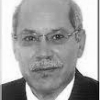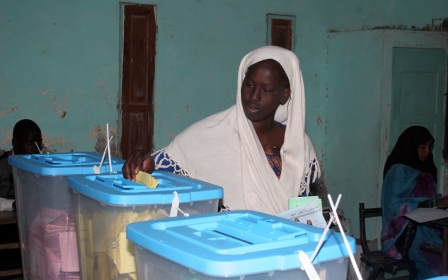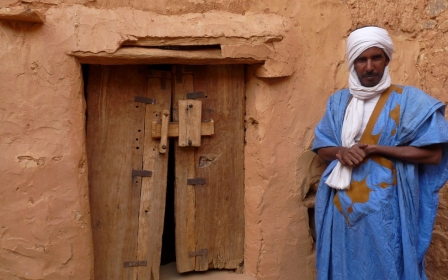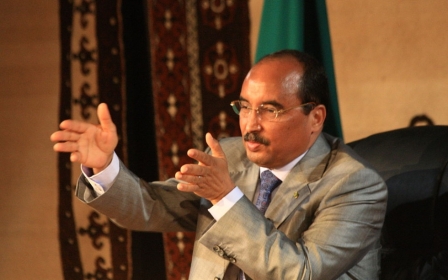Breaking down gender barriers in the Arab world

The first female minister of foreign affairs in the Arab world, Naha Mint Hamdi Ould Mouknass, was Mauritanian; while a married mother of three, Maty Mint Hamady, holds one of the nation’s most high-profile political roles – the mayor of the capital Nouakchott. These are not rare incidences; Mauritania leads the way in the Arab world with a growing number of female MPs. There has even been a rare bid for the presidency of Mauritania from a woman – Lalla Mariem Mint Moulaye Idriss is the second woman to seek election in a presidential poll in Mauritania (the elections took place on 21 June), following the candidacy of Aicha Bint Jeddane who ran in 2003 and 2009. Jeddane’s slogan: “You have tried a male president; why not try a female one.”
Matriarchal traditions
The fact that Mauritania’s women enjoy a strong ascendancy and real predominance in this tiny Arab nation has its roots in deep-rooted matriarchal traditions practised by the Sanhaja Berbers and Hilalian Arabs – the two tribes that the majority of Mauritanians are descended from.
Indeed, in the collective memory of the Berbers’ descendants lingers the profound veneration for what they consider their founding ancestor: the semi-goddess Tin Hinan. Similarly, the descendants of Bani Hilal still keep vividly in mind the fantastic tales narrated in the epic poem of their exile, set during the 11th century, which tells of their ancestors’ journey all the way from the Arab peninsula to North Africa.
In those tales, the famous Hilalien female heroes, such as Shiha, Al Jazia Al Hilalia and Khadra Sherifa, are glorified and their heroic deeds magnified. This profound veneration for these historical female figures may be why Mauritanian women enjoy a particular pre-eminence and authority in society.
This does not come without critics, though, this same authority, freedom, independence and self-assurance was recorded with utter dismay by the Moroccan globe-trotter and chronicler Ibn Batuta in his book, Rihla. Here he reported with astonishment that, during a stay he had in Walata (east Mauritania) in 1332, he saw the wife of his host, who was no other than the cadi (judge) of that town, chatting and laughing heartily with a man in presence of her husband. Batuta was stunned and outraged by what he considered as scandalous “ungodly” behavior. When he expressed his disapproval of that “reprehensible” situation to his Mauritanian host, the latter told him that to his mind nothing was wrong with what his wife and her friend did.
In fact, the uninhibited freedom to interact spontaneously with men that Mauritanian women have and their natural propensity not to shy away from such an interaction could perhaps be accounted for by the traditional nomadic style of life Mauritanians have had for a long time as well as by the nature of their peculiar habitat – the tent. Indeed, these are open spaces where nothing could be hidden or concealed. They do not offer any possibility for isolation and confinement. The nomadic way of life compels both men and women to live side by side, and pretty close to each other.
Consequently, the tendency men have in practically all Arab societies – to veil and seclude women so as to remove them from sight – is not in the Mauritanian character. In fact, Mauritanian women owe it to the well-established matriarchal traditions of their society to be independent, assertive, self-willed, uninhibited, outgoing and strong-minded.
Like men, Mauritanian women abide by Islamic prescriptions, but only as long as those prescriptions do not collide with their own principles. Thus they never accept polygamy; they may, if the necessity arises, divorce their husbands if they so wish. They invariably refuse to be forcefully veiled or to be confined out of sight. In fact, they usually react violently should a bigoted man make remarks concerning their attire, or order them to veil their faces.
Positive and progressive?
This all paints a positive and progressive picture, but a high divorce rate reveals the instability at the heart of many Mauritanian households. In addition, some traditional but abhorrent practices, such as the force-feeding of young girls in order to prepare them for marriage, leblouh, still persists in some rural areas, as does the practice of female genital mutilation (FGM) – it is estimated by UNICEF that 70 per cent of Mauritanian women aged 15 to 49 have been cut in this way – although some progress has been made in outlawing FGM.
Nevertheless, Mauritania’s matriarchal traditions have considerably favoured women and helped to strengthen their position in all walks of life. Moreover, it is worth mentioning that the gradual but notable improvement of women’s position in Mauritanian society is the result of a sustained and purposeful struggle they themselves have been carrying out for the last four decades.
More women than ever are involved in commerce, business and other diverse but lucrative industries that benefit the economy. In academic and scientific fields, there are more women faculty members, researchers and writers. In politics, there are growing numbers of female MPs (in 2009 women had achieved a parliamentary quota of 20 per cent of seats), plus a number of women have become high-ranking officials in the administration and in the armed forces.
There are now female judges, attorneys and ambassadors, as well as female leaders of political parties and chairs of civil society organisations. In fact, women participate fully in the public affairs of the country, and Mauritania could be said to be leading the way in women’s rights and equality in the Arab world.
In truth, Mauritania’s women are living up to their historic responsibility, one that they have been saddled with throughout the history of their country: to strive harder to ensure a brighter future for their country and its people to whom they owe so much.
- Mouhamed Lemine El Kettab is a lecturer in Nouakchott University, the chairman of the Club of the Mauritanian Intellectuals for Democracy and Development and the chairman of the Mauritanian branch of the Arab Organization for Human Rights.
The views expressed in this article belong to the author and do not necessarily reflect the editorial policy of Middle East Eye.
Photo: Women in Mauritania rallying in support of President Mohamed Ould Abdel Aziz in Nov. 2012 (AFP)
New MEE newsletter: Jerusalem Dispatch
Sign up to get the latest insights and analysis on Israel-Palestine, alongside Turkey Unpacked and other MEE newsletters
Middle East Eye delivers independent and unrivalled coverage and analysis of the Middle East, North Africa and beyond. To learn more about republishing this content and the associated fees, please fill out this form. More about MEE can be found here.





